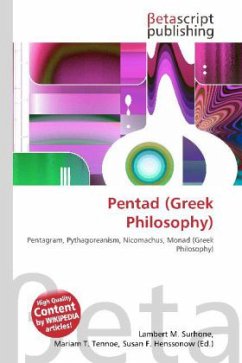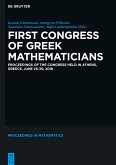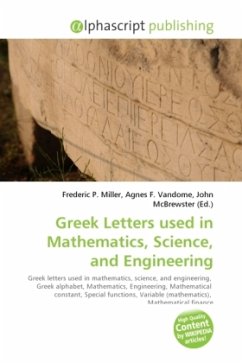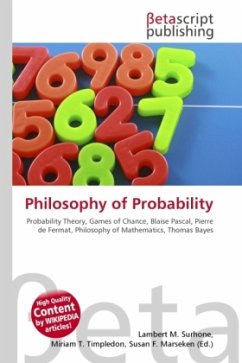Please note that the content of this book primarily consists of articles available from Wikipedia or other free sources online. The pentad was a Pythagorean term for the number five. A pentagram, symbol of the pentad, was used by the Pythagoreans as a secret sign to recognize each other. It represents the number five, life, power and invulnerability. Nicomachus explored the mathematical characteristics of the pentad as related to the Pythagorean saying "Justice is five". The Nicomachean extracts reads: "The pentad is change of quality, because it changes that which is triply extended or which has length, breadth and depth into the sameness of a sphere" Pythagoreanism is a term used for the esoteric and metaphysical beliefs held by Pythagoras and his followers, the Pythagoreans, who were considerably influenced by mathematics. Pythagoreanism greatly influenced Platonism. Later revivals of Pythagorean doctrines led to what is now called Neopythagoreanism.
Bitte wählen Sie Ihr Anliegen aus.
Rechnungen
Retourenschein anfordern
Bestellstatus
Storno








